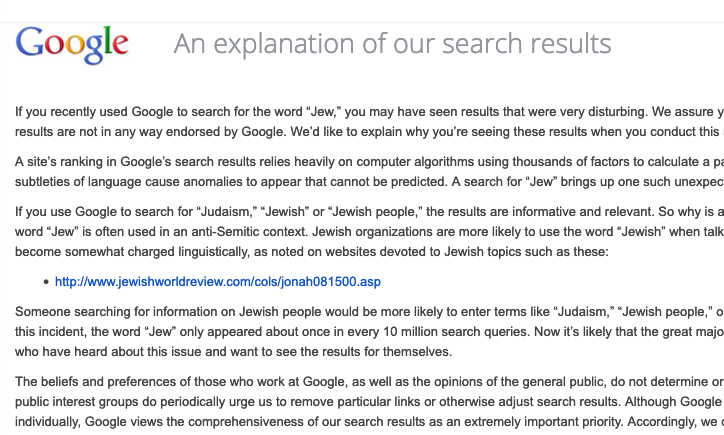Have you ever noticed that sometimes a word can be considered racially or culturally insensitive simply because of its part of speech? Adjectives used to describe groups of people (and generally accepted by those groups of people)—like black or gay—suddenly take a more sinister tone simply by transforming them into nouns—like the blacks or the gays. The most evident case being the adjective Jewish versus the noun Jew.
In fact, if you were to Google search the word Jew, websites for hate groups are often among the top results. Google actually has a disclaimer explaining the issue. They say that while the results may be disturbing:
…the word ‘Jew’ is often used in an anti-Semitic context. Jewish organizations are more likely to use the word ‘Jewish’ when talking about members of their faith. The word has become somewhat charged linguistically… 1
So the question is…why?
Well, consider this: If someone were to use the word dwarf, many would be more likely to think of the mythical being rather than a person with dwarfism, because that noun dehumanizes them. By referring to a group of people with a collective noun, we separate them as ‘others’ rather than welcoming them as people who happen to have a particular trait different from us.
But if we set that trait apart by making it an adjective, we put emphasis on the person’s humanity: She’s not a Jew, she’s a Jewish person. He’s not a dwarf, he’s a person with dwarfism.
This is certainly a very fine distinction which some may find pedantic and another case of over political correctness. But from a linguistic standpoint, it is interesting how such a simple case of grammar might affect our perception of others.
- “An Explanation of Our Search Results” | Google | 2011

